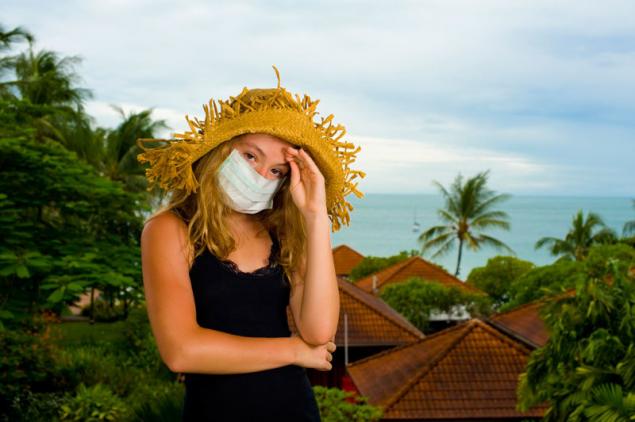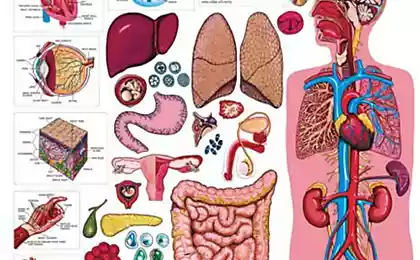195
Why do we get sick on vacation?

We often try to redo everything at work before we go on vacation. Are we becoming more vulnerable to colds?
I lost count of the people who told me how they rushed to finish their jobs in the run-up to their vacation—and caught a nasty cold as soon as they left the office. This didn’t necessarily happen in winter: summer vacations, beach holidays, and short trips were also in jeopardy.
For this phenomenon came up with a separate name: “free time syndrome”. The author of the term, Dutch psychologist Ad Wingerhuts, admits that this diagnosis is not yet described in the medical literature. However, the situation when you get sick at the very moment you have dealt with work issues is familiar to many. Is there really such a syndrome?
Whether the probability of getting sick on vacation is increased compared to working days is an open question: there has been no extensive systematic study of this problem. In order to gather some meaningful statistics, Wingerhuts asked more than 1,800 people if they thought they were suffering from “free time syndrome.” Only a little more than 3% of respondents answered affirmatively.
Given how often we work to wear out before vacation, trying to get everything done, we can conclude that this is not the norm, even the opposite. People were asked to decide for themselves whether something like this had happened to them – and we would rather remember how illness ruined our vacation than how we went somewhere and stayed healthy.
But if a minority believes they are susceptible, is there a physiological explanation? Nearly half of Wingerhuts’s survey respondents attributed the shift between work and vacation. In what way? There are several theories.
The first is that once we finally have the opportunity to relax, there is an imbalance in the body due to stress hormones that help us get the job done on time, leaving us vulnerable to infections. Adrenaline helps us cope with stress and also strengthens the immune system so that we can resist infections and feel good. In parallel with it, cortisol is produced: it also helps in stressful situations, but harms the immune system.
The transition from stress at work to relaxation on vacation can be too dramatic. . .
All this sounds convincing, especially in cases where the transition from stress to relaxation is rapid, but research is lacking to confirm this hypothesis.
Maybe people get sick from the beginning. They are so busy and so stubbornly resist illness until the holidays that they do not even notice the first symptoms until they begin to relax on vacation.
One thing is certain: our assessment of symptoms depends on what we are doing. Psychologist James Pennebaker found that the fewer events occur around a person, the more negatively he is inclined to evaluate the symptoms of his disease.
As part of his experiment, a group of students assessed how interesting 30-second clips of the film were. The psychologist then showed the same pattern to another group of students and tracked how often they coughed. The more interesting the scene was, the less they coughed. During the boring excerpts, they seemed to notice their sore throat and start coughing a lot (note this if you’re a classical music performer and get tired of the audience coughing!). However, you will probably notice that your head splits and runs out of your nose, no matter how much work you have.
There is another version: we get sick not as a result of work stress, but because of the stress that arises during the trip. Travel is always tedious, especially when it comes to flights, and the longer you fly, the greater the risk of catching some kind of virus.
We are sitting too close to each other in the cabin.
The average American gets a cold 2.5 times a year, from which the researchers conclude that the probability of contracting the infection during one flight should be 1% for an adult. However, a survey of people flying from San Francisco to Denver a week earlier showed that 20% of them caught a cold. If this level of incidence persisted throughout the year, people would catch a cold more than 56 times a year, that is, they would sniff their nose every week.
Often the cause of this number of colds is considered to be air recirculation in the cabin of the aircraft, but this factor did not play a role in this study. The researchers identified two other reasons: being in a confined space and, as a result, closer contact with infectious agents; and humidity. According to the hypothesis, under the influence of dry air in the cabin, mucus in the nose, trapping viruses and bacteria, becomes too thick and ceases to flow down the hairs through the throat into the stomach - which prevents the neutralization of these viruses and bacteria.
Ad Wingerhuts is open to other explanations for why people get sick on vacation. There is even a version according to which the disease becomes a good reason to interrupt an unsuccessful vacation. However, the lack of research in this area makes it impossible to give priority to any particular explanation; perhaps the truth lies in a combination of several factors.
And for some, illness is just an excuse to interrupt a failed vacation.
But the good news is that this syndrome is less common than you might expect. Moreover, the older we get, the more opportunities our body has to produce antibodies, so we start to catch a cold less often – regardless of whether we are on vacation or not.
Finally, we have reason to rejoice that we are not getting younger!
Source: www.bbc.co.uk/russian/science/2015/02/150219_vert_fut_holiday_illnesses
Why you need the assistance of a lawyer in civil proceedings?
Sex. Attempt to take a sober look at the sexual relationship























